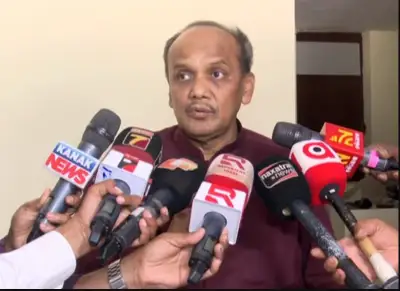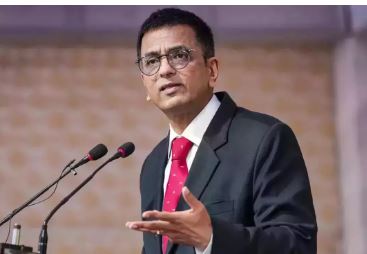

New Delhi, November 24: Former Chief Justice of India DY Chandrachud emphasized the critical role of the judiciary in safeguarding fundamental rights, even in areas traditionally considered policy matters.
Speaking about the doctrine of separation of powers in an interview with a TV channel, Chandrachud explained that while policymaking is the domain of legislators and the government, courts cannot remain silent when fundamental rights are at stake.
Referring to issues like pollution in Delhi, Chandrachud said, "There are spaces where there is no policy. Will courts stay silent? At a certain level, you could say it is a government domain or a policy issue, but such matters often involve fundamental rights."
He cited the Supreme Court's proactive role in issuing guidelines on workplace sexual harassment before legislation was enacted as an example of the judiciary stepping in to address gaps in governance.
Separation of Powers and Modern Challenges
Chandrachud acknowledged that the doctrine of separation of powers—a principle dividing state authority among the legislative, executive, and judicial branches—faces modern-day challenges. He pointed out the increasing influence of regulatory agencies like SEBI and CCI, which now handle functions traditionally performed by courts. "This shift reflects the complexity of the modern era, but the separation of powers remains a cornerstone of democracy," he said.
Reflections on Post-Retirement Life
Chandrachud, who retired on November 10, expressed mixed emotions about his new phase of life. After decades in judicial service, he admitted it was challenging to adapt but appreciated the freedom of being a private citizen. Reflecting on his career, he shared, "In my life, I gained much but sacrificed equally, missing family meals and personal moments to fulfill my judicial responsibilities."
Justice Khanna Takes Over
Chandrachud’s successor, Justice Sanjay Karol Khanna, has now taken over as the Chief Justice of India. With a legal career spanning diverse fields such as constitutional law, taxation, and environmental law, Justice Khanna is set to serve a six-month tenure. Elevated to the Supreme Court in 2019, Khanna has brought extensive experience, including his tenure as senior standing counsel for the Income Tax Department and his work in the Delhi High Court.
The transition marks the beginning of a new era for India’s judiciary, as the principles of justice and constitutional values remain at the forefront of national discourse.